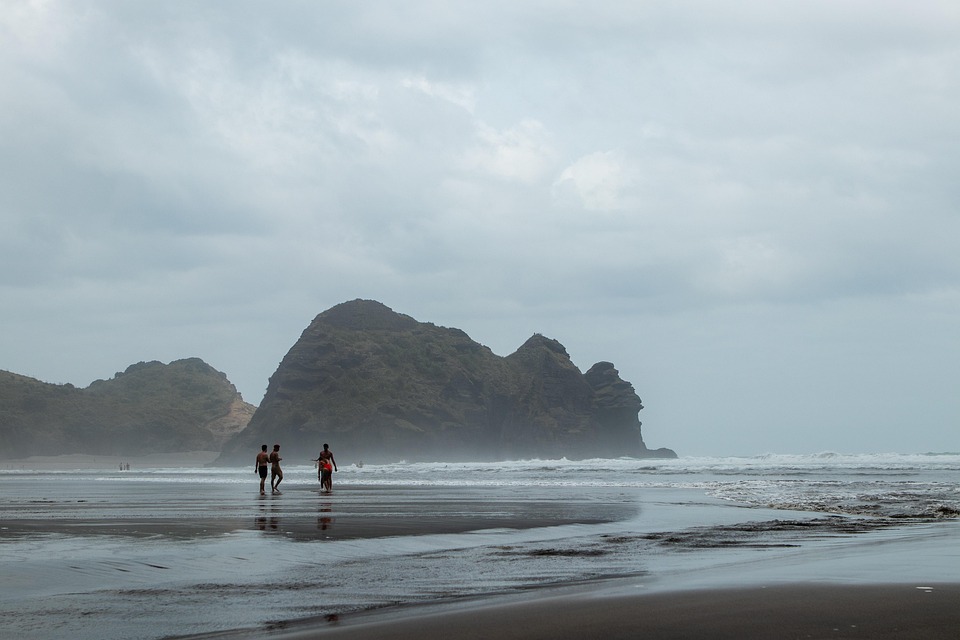“This is the moment to combine opportunity with urgency,” Brazilian President Luiz Inácio Lula da Silva said, calling for a decisive defeat of climate denial and faster action to maintain the 1.5°C target.
As negotiations begin at the two-week annual summit, held this year in a town at the mouth of the Amazon, UN climate chief Simon Stiell urged delegates not to “bicker” but to focus on turning ambition into action.
“Your job here is not to fight against each other – your job here is to fight this climate crisis together,” he said. “This is the growth story of the 21st century – the economic transformation of our time. »
Cautious optimism as pledges rise
A sense of cautious optimism marked the first day of COP30, following the announcement that dozens of new national climate plans – known as the NDC – brought the total to 113 countries now committed to the fight against global warming. Together, they account for almost 70% of global greenhouse gas emissions – a significant step forward in the race to control temperatures.
A preliminary assessment by the United Nations Framework Convention on Climate Change (UNFCCC), which organizes the annual COPs, suggests that these commitments could reduce emissions by 12% by 2035. This is progress, but not yet enough to guarantee the 1.5°C target. The challenge now is to transform promises into action at a pace appropriate to the scale of the crisis.
The emissions curve is starting to bend
In his opening remarksUN Climate Change Executive Secretary Simon Stiell said commitments and agreements reached by successive COPs were starting to show their impact, with the global emissions curve now starting to bend downward.
He acknowledged that much remains to be done, but stressed that Belém – “home to the mouth of the mighty Amazon River” – can serve as inspiration.
“The Amazon is not a single river, but a vast system supported by more than a thousand tributaries,” he said. “Similarly, the implementation of the results of the COP must be driven by multiple streams of international cooperation. »
No country can go it alone
Mr. Stiell warned that “no national plan can solve this problem alone,” emphasizing that no country can afford the economic shock of climate disasters that reduce GDP by double digits.
“It makes no economic or political sense,” he said, “to stand idly by while catastrophic droughts destroy crops and send food prices skyrocketing.” He called it “unforgivable” that extreme weather conditions continue to claim millions of lives when proven solutions already exist.
Among the main priorities of COP30, the UN climate chief highlighted:
“We cannot exceed the limit of 1.5°C”
In his opening speech, President Lula warned that “climate change is not a threat to the future – it is a tragedy of the present.”
Citing Hurricane Melissa in the Caribbean and a tornado in Paraná, the president said this was “the COP of truth,” warning that denial and delay are no longer options. “We are moving in the right direction, but at the wrong speed,” he said. “Crossing 1.5°C is a risk we cannot take. »
He then forcefully called for an end to climate denialism, emphasizing that: “In the age of disinformation, obscurantists reject not only scientific evidence but also the progress of multilateralism. They control algorithms, sow hatred, sow fear and attack institutions, science and universities. It is time to impose a new defeat on the denialists. Without it Paris Agreementthe world is heading towards catastrophic warming of nearly 5°C by the end of the century. »
-
André Corrêa do Lago (left) of Brazil and president of COP30, greets President Luiz Inácio Lula da Silva during the opening of the conference in Belém.
A path beyond dependence on fossil fuels
President Lula urged world leaders to adopt ambitious climate commitments and keep adaptation at the heart of national strategies. He called for “a road map for humanity to overcome, in a just and planned way, its dependence on fossil fuels, reverse deforestation and mobilize the resources needed to do so.”
To support this vision, he announced the creation of a new fund intended to support the energy transition in developing countries, financed by revenues from oil exploration.
The Leaders’ Summit, held on November 6 and 7 in Belém, has already mobilized $5.5 billion for the Rainforest Fund Forever – a fund designed to reward nations that protect tropical forests. Other collective commitments include recognizing indigenous land rights, quadrupling sustainable fuel production, and linking climate action to the fight against hunger, poverty, and environmental racism.
Bringing COP30 to the heart of the Amazon was, in Lula’s words, “a difficult but necessary task”, giving the world the opportunity to witness the realities of the most biodiverse biome on the planet, home to more than 50 million people and 400 indigenous groups. “May the serenity of the forest inspire the clarity of thought needed to see what needs to be done,” he said.
‘COP of implementation, adaptation and science’
Meanwhile, André Corrêa do Lago, President of COP30, presided over the official opening of the summit following a musical performance performed by members of the Guajajara indigenous people.
He urged delegates to make it the “COP for climate policy implementation, adaptation and economic integration – and above all, the COP that listens and believes in science.”
He concluded by recognizing the crucial role of indigenous peoples as guardians of the Amazon, the region now at the center of global attention.
Originally published at Almouwatin.com








